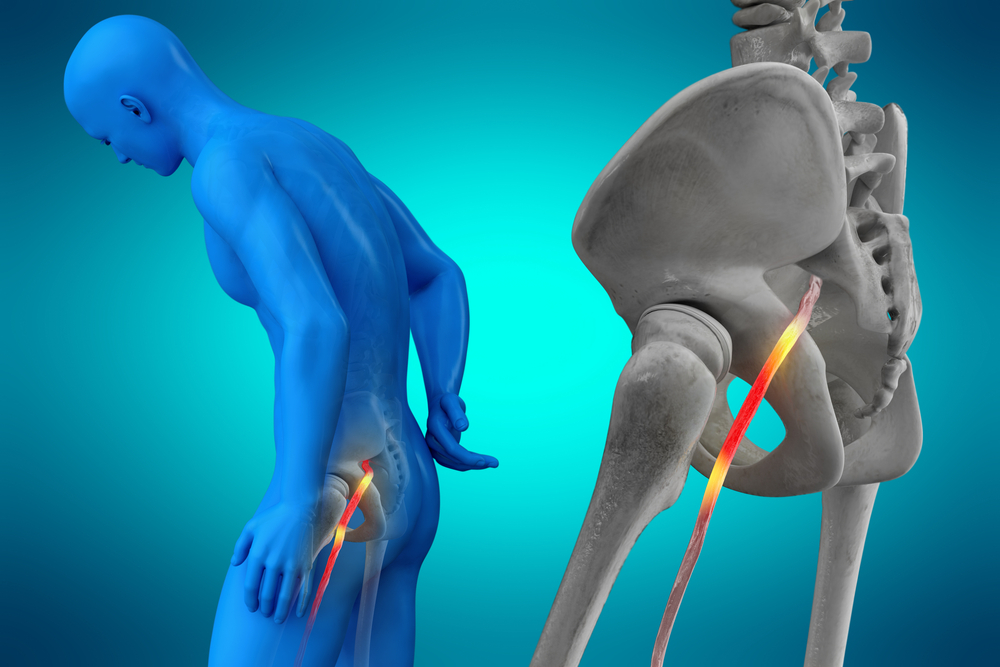Chronic back pain can be an overwhelming condition, and for many people, it is often caused by sciatica. This debilitating condition affects millions worldwide, often making even the simplest movements painful. If you’re searching for relief from sciatica, consulting a specialist near you can be the key to managing and potentially overcoming the condition. In this article, we’ll explore what sciatica is, how it contributes to chronic back pain, and what you can expect from specialists who treat this condition.
What is Sciatica?
Sciatica refers to pain that radiates along the path of the sciatic nerve, which runs from your lower back down through your hips and buttocks, and down each leg. It is typically caused when the nerve is pinched, compressed, or irritated. Common causes include a herniated disc, bone spurs on the spine, or narrowing of the spine (spinal stenosis). The pain of sciatica can range from mild discomfort to severe, sharp pain that affects your ability to move.
Symptoms of Sciatica
Sciatica symptoms can vary depending on the root cause, but most people experience:
- Pain that radiates from the lower back to the leg, usually on one side
- Sharp, burning sensations in the back or leg
- Numbness, tingling, or weakness in the leg or foot
- Difficulty standing, walking, or sitting for long periods
- Worsening pain after prolonged sitting, sneezing, or coughing
Recognizing these symptoms early and seeking treatment is essential for preventing chronic issues.
Importance of Sciatica Specialists
Chronic sciatica pain can interfere with daily life, making it difficult to work, exercise, or enjoy everyday activities. Sciatica specialists are trained to diagnose and treat the underlying causes of this pain, using a variety of techniques that range from conservative treatments to more advanced interventions.
A sciatica specialist, often a neurologist, orthopedic surgeon, or pain management doctor, has the experience needed to tailor treatments specific to your condition. They can assess whether your sciatica is due to muscle strain, a herniated disc, or another underlying issue, and they will work with you to find the most effective treatment plan.
How Sciatica is Diagnosed
When you consult a sciatica specialist, they will first conduct a thorough physical exam, reviewing your medical history and symptoms. Diagnostic tests such as X-rays, MRIs, or CT scans may be used to identify the precise cause of the pain. Once the root of the problem is diagnosed, the specialist can recommend appropriate treatment options.
Treatment Options for Sciatica
There are several treatment approaches that a sciatica specialist may recommend, depending on the severity of your symptoms and the underlying cause of the nerve irritation:
Conservative Treatments
- Physical Therapy: Strengthening the muscles around the lower back, hips, and legs can relieve pressure on the sciatic nerve. A physical therapist will guide you through exercises aimed at improving flexibility, posture, and core stability.
- Medications: Over-the-counter pain relievers, such as ibuprofen or naproxen, can help reduce inflammation and pain. In more severe cases, a specialist may prescribe muscle relaxants or anti-inflammatory medications.
- Heat and Ice Therapy: Alternating between heat and cold can reduce inflammation and promote blood flow to the affected area, helping with pain management.
Advanced Interventions
- Corticosteroid Injections: For more severe cases, corticosteroid injections around the irritated nerve may reduce inflammation and provide temporary pain relief. These injections typically last for several weeks to months, allowing patients to engage in physical therapy or other rehabilitation.
- Spinal Decompression: Non-surgical spinal decompression therapy uses mechanical traction to relieve pressure on the sciatic nerve, providing relief without invasive procedures.
- Minimally Invasive Surgery: In cases where conservative treatments fail, surgery may be recommended. Procedures like microdiscectomy, where part of a herniated disc is removed, or laminectomy, where bone spurs are shaved down, can relieve the compression on the nerve.
Finding the Right Sciatica Specialist Near You
Finding the right specialist for sciatica care is crucial for long-term relief. Here are some tips on how to locate the best professional near you:
- Consult Your Primary Care Doctor: Start by asking your primary care physician for recommendations. They may refer you to a pain management doctor, neurologist, or orthopedic specialist who focuses on back pain and sciatica.
- Check Online Directories: Websites such as Healthgrades, Zocdoc, or Vitals offer reviews and ratings of doctors, allowing you to find specialists in your area with positive patient feedback.
- Look for Specializations: Ensure that the specialist has extensive experience treating sciatica and lower back pain. They should be well-versed in both conservative treatments and more advanced interventions.
- Inquire About Treatment Approaches: During your consultation, ask about the treatment methods they commonly use. It’s important to work with a doctor who prioritizes a tailored approach to your specific condition.
What to Expect from Your Sciatica Specialist
When you first visit a sciatica specialist, they will work with you to develop a comprehensive treatment plan aimed at both managing your pain and addressing its root cause. You can expect the following steps:
- Initial Assessment: A thorough review of your medical history, lifestyle factors, and the severity of your pain.
- Diagnostic Testing: Imaging studies such as MRIs or X-rays may be ordered to confirm the cause of sciatica.
- Personalized Treatment Plan: Based on the findings, your specialist will design a treatment plan that could involve physical therapy, medications, or advanced interventions.
- Follow-Up Care: Ongoing evaluation of your condition and adjustments to the treatment plan as needed, ensuring long-term relief.
Conclusion
Chronic back pain caused by sciatica can be life-altering, but with the right care from a specialist, relief is possible. From conservative treatments like physical therapy and medication to more advanced interventions such as corticosteroid injections or surgery, sciatica specialists offer a range of options to help you manage and overcome your pain.
If you’re experiencing sciatica symptoms, don’t wait to seek professional help. The right sciatica specialist near you can make a world of difference in your journey toward recovery. Contact a specialist today to explore your treatment options and take the first step toward a pain-free life.nt or severe varicose veins, consulting a vein specialist for advanced treatment options is essential to avoid complications. If you experience any symptoms of a burst vein, don’t hesitate to seek medical attention to protect your health.




